More people are looking into laser hair removal as a practical option in their quest for better, hair-free skin. The popularity of this cosmetic surgery has been driven by the appeal of decreasing or eliminating the need for frequent shaving or waxing. But for those thinking about laser hair removal, there’s a common worry on their minds: Is it permanent? We will dissect the nuances of laser hair removal in this thorough investigation, looking at the science underlying it and evaluating the elements that influence its perceived permanence.
Understanding the Mechanism of Laser Hair Removal
The idea underlying laser hair removal is both basic and complicated. It targets and destroys hair follicles with intense laser beams. The process’s key component is the pigment in hair follicles’ absorption of light, which, under the right conditions, gradually reduces and, in most cases, completely removes undesired hair. Dark hair and light skin types benefit most from this technique since it works best when there is a noticeable difference between the colour of the hair and the surrounding skin.
The Three Stages of Hair Growth
It is necessary to become familiar with the natural cycle of hair development to fully understand the complexities of laser hair removal. Three separate phases occur in human hair:
1. Growth (Anagen Phase):
The hair follicle grows new hair during this period, which is known as active growth.
2. Transitional Phase of Catangag:
Hair growth slows down and follicle shrinkage starts during this intermediate period.
3. Resting/Telogen Phase:
This stage is characterized by inactive hair growth and possible hair loss of the older hair.
Laser hair removal is the most effective during the anagen phase, as the actively growing hair follicle is more susceptible to the laser’s energy. However, not all hair is in the anagen phase simultaneously, necessitating multiple sessions to target hair at different stages of growth.
Effectiveness and Permanency of Laser Hair Removal
Unquestionably, laser hair removal is effective; following a series of sessions, many patients report a noticeable decrease in their growth of hair. To assert laser hair removal as a permanent treatment, however, one must have a sophisticated comprehension of the variables influencing the procedure’s long-term effectiveness.
1. Hormonal Changes:
Patterns of hair development can be greatly impacted by changes in hormones. Increased hair growth can be caused by pregnancy, menopause, and diseases, including polycystic ovarian syndrome (PCOS). In certain situations, people could see regrowth even following fruitful laser hair removal procedures. More long-lasting outcomes might arise from treating underlying hormone abnormalities medically.
2. Genetic Predispositions:
Hair colour, growth patterns, and thickness are mostly determined by genetics. Certain people are genetically inclined to have denser or coarser hair, which can make laser hair removal less successful in producing completely permanent results. It can be beneficial to have reasonable expectations about the procedure’s outcome by being aware of one’s genetic makeup.
3. Skin and Hair Color Contrast:
The degree of colour contrast between the hair and surrounding skin is a critical factor in the effectiveness of laser hair removal. Since the laser can more precisely target the hair follicles in people with dark hair and light complexion, these people are thought to be the best candidates. Less ideal results may be experienced by those with lighter hair or darker skin, requiring more sessions to get the desired results.
4. Number of Sessions:
One major element affecting how permanent the results are is how many laser hair removal treatments are performed. Targeting hair at different stages of growth requires many sessions because not all hair is in the anagen phase at the same time. The possibility of getting the intended, long-lasting effects rises with strict follow-up to the advised treatment plan.
The above detail has made it clear that though laser hair removal offers a remarkable reduction in unwanted hair, categorizing it as a completely permanent solution may be oversimplified. Several factors affect the procedure’s effectiveness depending on a variety of factors that vary from person to person; such factors include hormonal changes, genetic predispositions, and adherence to the recommended treatment plan.
For honest recommendations and assessment of the success level of laser treatment, consultation with qualified professionals is paramount. These experts can study individual circumstances, provide realistic expectations, and customize treatment plans according to their patient’s needs and personal requirements. Though not entirely permanent, laser hair removal remains a valuable and popular option for those who are seeking a substantial and long-term reduction in hair growth and have gotten fed up with the hassles of frequent shaving and waxing or using any other traditional hair removal method.




